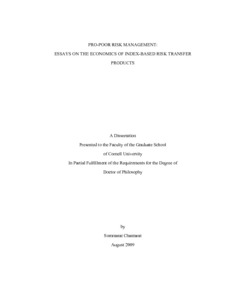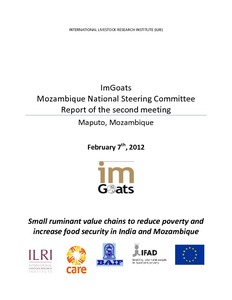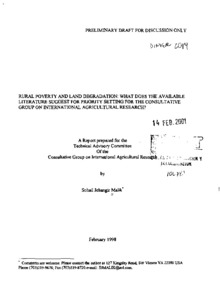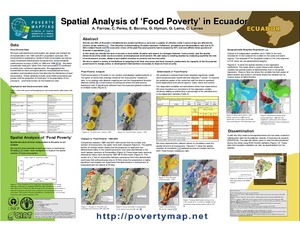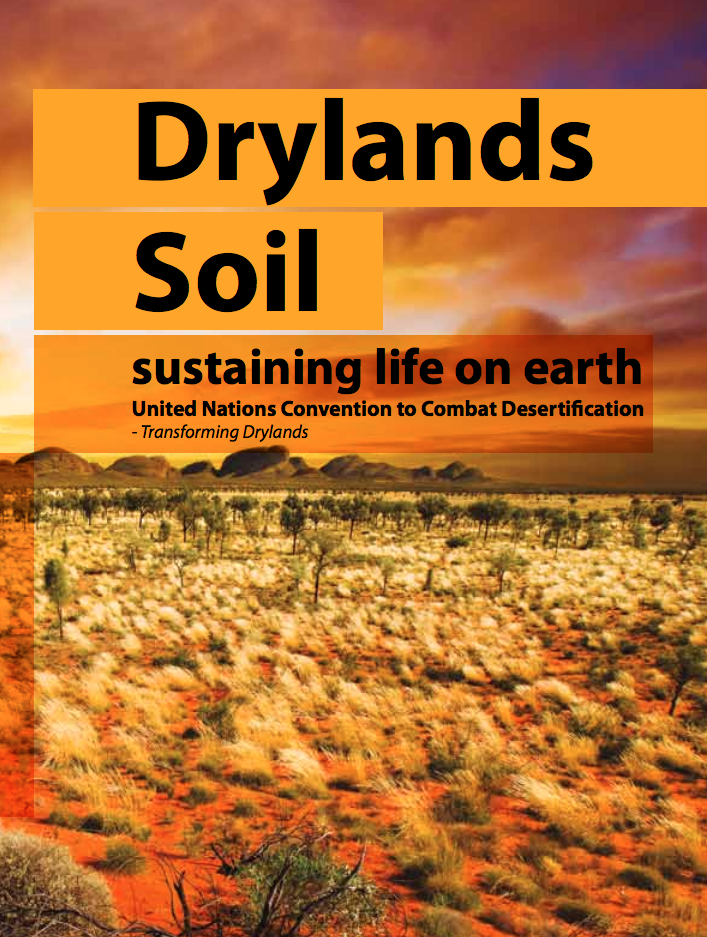Proceedings of the Workshop on Irrigation in West Africa: Current Status and a View to the Future, Ouagadougou, Burkina Faso, 1-2 December 2010
Poverty and forests: multi-country analysis of spatial association and proposed policy solutions
This paper examines poverty and deforestation in developing countries as linked problems and focuses on policies that can favour poverty alleviation in forested regions. The paper encompasses two elements: analysis of the spatial coincidence between poverty and forests, and proposed policy options for reducing poverty in forested areas.
Pro-poor risk management: essays on the economics of index-based risk transfer products
This dissertation explores innovations in index-based risk transfer products (IBRTPs)
as a means to address an important isurance market failure that leaves many poor and
Report of the Second Meeting of the imGoats Mozambique National Steering Committee, Maputo, Mozambique, 7 February 2012
Responding to global challenges in food, energy, environment and water: risks and options assessment for decision-making
We analyse the threats of global environmental change, as they relate to food security. First, we review three discourses: (i) ‘sustainable intensification’, or the increase of food supplies without compromising food producing inputs, such as soils and water; (ii) the ‘nexus’ that seeks to understand links across food, energy, environment and water systems; and (iii) ‘resilience thinking’ that focuses on how to ensure the critical capacities of food, energy and water systems are maintained in the presence of uncertainties and threats.
Southern Africa’s water-energy nexus: towards regional integration and development
The Southern African Development Community’s (SADC) water and energy sectors are under increasing pressure due to population growth and agricultural and industrial development. Climate change is also negatively impacting on the region’s water and energy resources. As the majority of SADC’s population lives in poverty, regional development and integration are underpinned by water and energy security as the watercourses in the region are transboundary in nature. This paper reviews the region’s water and energy resources and recommends policies based on the water–energy nexus approach.
Spatial analysis of 'food poverty' in Ecuador
Drylands Soil: Sustaining Life on Earth
Often, when people think of drylands, they think of deserts and hostile living conditions, economic hardship and water scarcity. But that is not what drylands are all about. If managed well, drylands are often fertile and capable of supporting the habitats, crops and livestock that sustain the entire global population.
Sustainable intensification of agriculture for human prosperity and global sustainability
There is an ongoing debate on what constitutes sustainable intensification of agriculture (SIA). In this paper, we propose that a paradigm for sustainable intensification can be defined and translated into an operational framework for agricultural development. We argue that this paradigm must now be defined—at all scales—in the context of rapidly rising global environmental changes in the Anthropocene, while focusing on eradicating poverty and hunger and contributing to human wellbeing.


